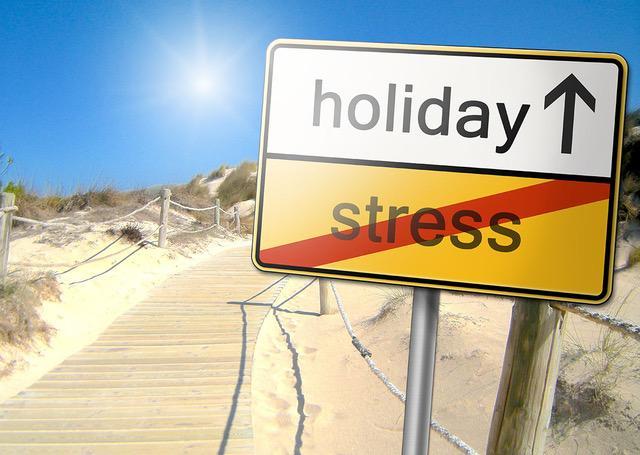The holidays are an ambivalent period for most people, a time for celebration but also for more complicated feelings. We’re here to help you through the challenges this time of year brings. Read recommendations for ways to cope, whether it’s dealing with difficult relatives or avoiding burnout from all the holiday to-dos.
“The combination of trying to be mom, navigate family relationships, and get through the pandemic makes this year particularly challenging,” says WCWCW Child and Adolescent Psychiatrist Dr. Alexis Wesley. “But, as we come to the end of 2021, this also marks a time to take stock of what you have to be grateful for and enjoy this time with your loved ones.”
Know your risk tolerance
With vaccinations available for children five and over, many of us have made plans to gather with loved ones this year, but news of the Covid-19 Omicron variant has put some of us back into a state of confusion. Until more detailed information is available, it’s especially important to re-establish the level of risk you and your family can tolerate this year. Do you want to gather only with people who are vaccinated? Should everyone be tested prior to your gathering? Is it important that your children are vaccinated before they see people outside your household? Do you need a booster? Plan ahead by answering these questions for yourself and your family and then hold tight to your plans.
Plan for travel hiccups
If you anticipate that your travel plans might be thrown for a loop, you’ll be less likely to get frustrated if they do, and pleasantly surprised if they don’t. This year, definitely plan for delays and crowds as well as complications from the new variant. If traveling feels too complicated or unsafe, remember it’s okay to decline an invitation and instead enjoy a simpler holiday season at home.
Head off family fault lines
This time of year often brings family baggage to the surface and triggers old issues. Keep in mind a holiday gathering is generally not a good place to hash out past disagreements or political debates. (Difficult conversations are best saved for one-on-ones and planned in advance).
“You’re not going to come to an agreement over the holiday dinner,” WCWCW’s Founder and Director Dr. Wendy Hookman says. “Usually people just leave feeling a mixture of anger and guilt.”
Suggest ground rules for dinner, such as not talking about divisive topics, like politics, religion, or even vaccines, if you know it’ll be problematic. If this isn’t possible, set boundaries for yourself going into a gathering. If an aggressive relative tries to goad you into a conversation you don’t want to have, state your boundary. For example: “I prefer not to talk about politics at family events.” Identify potential trigger people who you may want to avoid talking to for too long—such as a mother-in-law who always comments on people’s weight, or an uncle who loves to ask about money.
You can even have a few conversation starters handy to steer people to other topics, like asking what everyone’s thankful for this year or if they had a favorite movie of 2021.
Finally, suggest activities that get you moving, like taking a walk after your meal, playing a group sport, or cooking.
“After dinners, my family has a tradition of taking a walk. Physical activity like this diffuses the stress and tension and gets everyone out,” says Dr. Hookman.
Reduce invisible labor
For moms, the holiday season is hardly a vacation, with the kids home from school for break, travel, hosting, and gift-giving. A partner who isn’t pitching in to help only adds to the stress. Instead of becoming inwardly resentful, use this time off as an opportunity to get your partner—and children—involved in holiday preparations. Be specific about assigning tasks, such as “set the table,” or “put away Christmas ornaments.”
You can even do chores as a family. “It can be a quality family moment. Doing dishes or packing together is a lot more fun than when one person does these tasks alone,” Dr. Hookman says.
If you’re hosting a holiday event, enlist your guests to help pitch in. Recruit a particularly helpful guest to model gracious behavior, like table setting and drink pouring, and others will be encouraged to follow suit.
Don’t forget about yourself
When you’re running around trying to check everything off the list, it’s easy to go on auto-pilot and lose sight of your own needs. Take time to check in with yourself. Practice self-care. If you are stuck in a mental checklist loop noting everything you still need to do or where you’ve fallen short, counter that by reminding yourself how much you’ve already finished.
“We tend to fall into a cycle of noticing everything we’re not accomplishing, like not getting cards out earlier enough, or forgetting to pack the kids’ toothbrushes,” says Dr. Wesley. “Often people get lost in these little things. No one will remember if a card comes in the mail a little late. You can always buy toothbrushes. Appreciating all you’re accomplishing helps you take a step back and reframe thinking that is too hard on yourself.”
If things are feeling too difficult, lower your expectations for yourself. Remember, this is still a very challenging time, and you’re probably doing more than usual to plan because of the pandemic.
“Keep things simpler, if you need to, and utilize your support system,” says Dr. Wesley. “You don’t have to be Super Mom.”
Get help
If you’re feeling overwhelmed and feel you need help getting through this period, to learn more about our mental health services, or to make an appointment, contact us at WCWCW.






